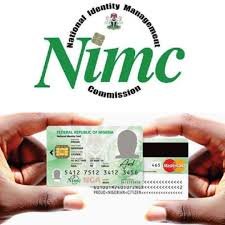The current high cost of living has pushed the prices of contraceptives, condoms, and drugs worrisomely out of reach of many Nigerians. The concern however is if the situation persists chances of baby boom, and unchecked pregnancies among teens are high, Jumoke Olasunkanmi reports from a survey conducted recently.
In the midst of Nigeria’s current economic turmoil and skyrocketing inflation rates, there exists a silent crisis affecting the lives of its citizens—the escalating cost of contraceptives.
Soaring Prices
While public attention is fixated on the soaring prices of food and other essential commodities, the affordability of birth control measures, ranging from condoms to oral contraceptive pills and self-injectables, has become increasingly out of reach for the average Nigerian.
The current economic landscape, characterized by dwindling purchasing power and rising inflation, has exacerbated the financial burden on individuals seeking to exercise reproductive autonomy and safeguard their sexual health.
The implications of this overlooked aspect of the economic crisis extend far beyond the realm of personal choice, impacting both individuals and society at large.
A market analysis conducted by Africa Health Report shows the severity of the situation, revealing price hikes across various contraceptive methods.
Condoms Selling for N600
Condoms, the commonest form of birth control and STI prevention, have seen their prices triple in recent months, making them too expensive for many. For instance, a pack containing three condoms, once affordable to the masses, now sells at a price of N600—three times its previous cost.
Similarly, oral contraceptive pills, another commonly used method, have witnessed dramatic price increases, with popular brands like Postinor 2 now retailing for N1,350, compared to N500 less than a year ago.
Even self-injectable contraceptives, such as Sayana Press, have seen their prices surge to N2500 – N3500 from just N300 in 2020, placing them beyond the financial reach of many Nigerians

Baby Boom, Rise in STIs
At the individual level, the unaffordability of contraceptives poses significant challenges and risks. With the cost of basic birth control measures spiraling out of reach, individuals are forced to confront heightened risks of unintended pregnancies and sexually transmitted infections (STIs).
The high cost of condoms will no doubt contribute to the prevalence and transmission of STIs such as HIV, genital herpes, Chlamydia, and syphilis.
HIV Prevalence Rate
Nigeria currently has an HIV Prevalence rate of 2.7 percent and cannot afford to see an increase.
For many, particularly marginalized populations and youth, the inability to access affordable contraceptives undermines their ability to make informed decisions about their reproductive health, perpetuating cycles of poverty and inequality.
As many can no longer afford to prevent or plan pregnancies, and abortion remains illegal, they are forced to give birth to children that they are unable to take care of.
Consequently, the country may see a rise in birth rate.
Furthermore, the societal repercussions of inaccessible contraceptives are profound. Nigeria, with a population exceeding 230 million people, faces the prospect of a demographic crisis aggravated by constrained access to birth control.
Unsustainable Population Growth
The lack of affordable contraceptive options contributes to unsustainable population growth, placing immense strain on already overburdened healthcare systems, education infrastructure, and social services. Moreover, the persistence of high fertility rates perpetuates poverty and hinders economic development, thwarting efforts to achieve sustainable development goals.
NACA
However, government agencies such as the National Agency for the Control of Aids (NACA) and Planned Parenthood as well as Non-governmental Organizations like AIDS Healthcare Foundation (AFH) provide free and subsidized contraception to the public.
In an interview with AHR, the Clinic Officer of Planned Parenthood Federation of Nigeria, Mary Ifarome explained that the agency still offers all forms of contraception at a subsidized price to ensure that indigents in the society can access reproductive care.
“Our condoms are 144 pieces in a packet and we sell it for N2,000. This is much cheaper than what it is sold for outside.
We also offer other forms of birth control at subsidized prices, for example, all our injectables, we give it out for just N200.”
She also added that their clinics have been seeing more women come for the injectables as it is non-invasive and affordable.
“We see more people coming out for the injectable more than the long-acting forms of contraception because the injectables, once you take it, nobody knows you have it.”
Need for Urgent Action
As the country struggles with the multifaceted challenges posed by the economic crisis, it is important to recognize and address the interconnected issue of contraceptive access.
Ensuring affordable and accessible birth control measures is not merely a matter of individual choice but a crucial component of public health, gender equality, and socioeconomic development.
Urgent action is needed to mitigate the impact of rising contraceptive prices, lest Nigeria find itself facing a future marred by preventable health crises and demographic imbalances.



